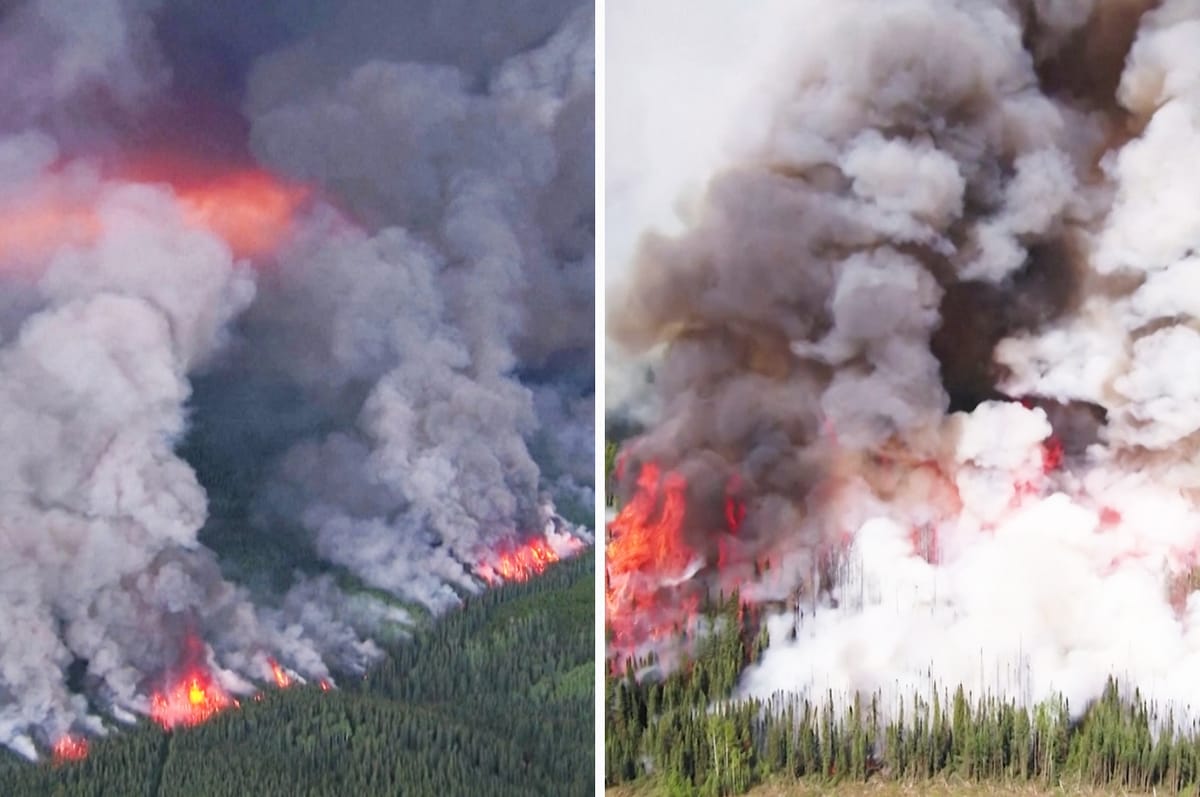The Canadian Wildfires Are Now The Worst In Modern History And Blew Smoke All The Way To Europe
The fires have burned nearly 20 millions of acres of land as of June 28.

Canada is officially facing its worst wildfire season in modern history, as more than 483 active wildfires, including 250 deemed out of control, rage across the country.
Smoke from the wildfires, which have been burning since March, has billowed as far as New York and now even reached Europe.
The unusually hot and dry weather caused a string of blazes to spread to almost all Canadian provinces, with some of the worst cases caused by lightning.
The fires have burned nearly 20 millions of acres of land as of June 28, and at least 120,000 residents have been forced to evacuate across the country.
A jet stream – strong winds in the atmosphere – has now spread the smoke across the Atlantic Ocean towards Europe.
Satellite images from June 26 showed the smoke from the wildfires in northern Portugal and Spain.
It has since spread as far as the UK and northern Europe.
The smoke traveled higher in the atmosphere, which meant the air quality has remained non-hazardous.
However, authorities said the smoke would cause “vivid sunrises and sunsets” in the following days.
Earlier in the month, the fires triggered health alerts as the smoke caused poor air quality throughout Canada and drifted south to as far as New York in the US.
On June 6, New York recorded the worst air quality and pollution in the world, surpassing cities like Delhi in India, Baghdad in Iraq and Dubai, United Arab Emirates, according to IQAir, a Swiss technology company that monitors air quality
The wildfires have scorched about 8.1m hectares in Canada this year, which is about 21 times the average from the past 10 years, according to authorities
In May, hot and dry weather conditions fueled more than 100 wildfires in the western province of Alberta, forcing tens of thousands of people to evacuate their homes.
Officials said that higher-than-normal fire activity is likely to continue throughout the summer.
Experts say that as the world gets hotter due to climate change, dry and wet seasons will become more intense around the world.




